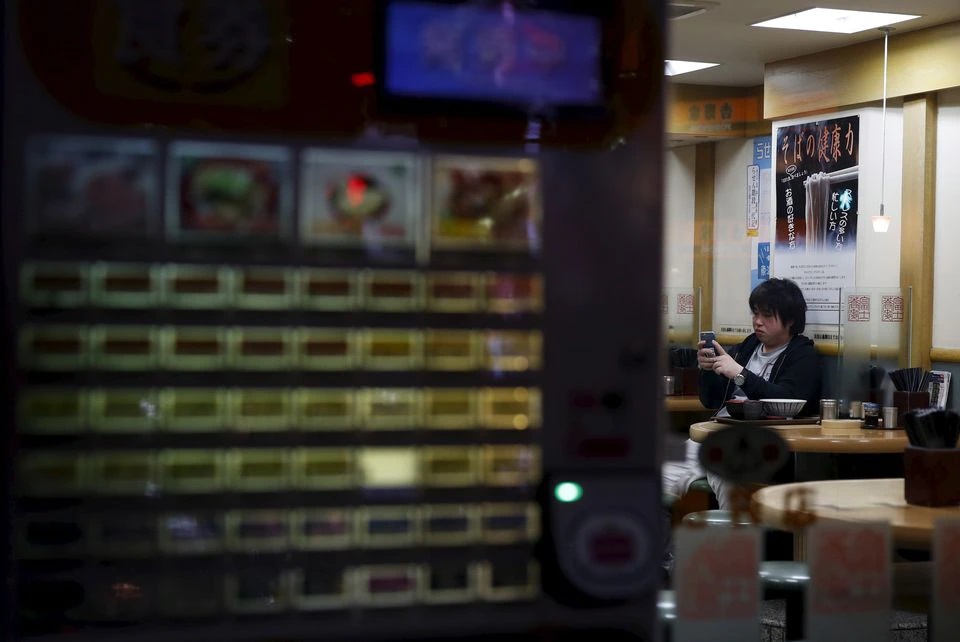Japan’s low-cost soul food may turn casualty of war

A customer looks at his mobile phone at Soba noodle restaurant at a shopping district in Tokyo, Japan, February 25, 2016. REUTERS/Yuya Shino/Files
TOKYO—Ryu Ishihara will soon be raising prices on his inexpensive bowls of soba noodles for the first time in nearly a decade, as rising costs and Russia’s invasion of Ukraine take an unlikely toll on Japan’s beloved buckwheat noodles.
Though seen as one of the most quintessential of Japanese foods—and eaten on New Year’s Eve for good luck—a good part of the buckwheat that goes into the noodles comes from Russia, globally the top buckwheat producer.
Russian buckwheat can still be imported, but instability and shipping disruptions have hampered and delayed procurement. That has added to the pain for soba shop owners such as Ishihara who are already suffering as a global surge in commodity prices, coupled with the yen’s plunge, has sent prices climbing.
Soy sauce, flour, the vegetables used for tempura toppings and even the fish used for the broth have all risen in cost.
Unavoidable
“The suppliers did all they could, but this time the situation’s so bad there’s no way to avoid raising prices. There are things I’ll have to raise by 10 to 15 percent,” Ishihara said in his narrow shop, steaming vats of water behind him.
Article continues after this advertisementSoba is famous as a cheap meal served cold or hot, often slurped quickly by workers and students in narrow shops that may cut costs by doing without seats. The noodles’ low calorie count and nutritious vitamin and mineral content makes them healthy too.
Article continues after this advertisementIshihara’s prices run from 290 yen ($2.25) up to 550 yen, with add-ons such as tempura and sets with rice costing more.
“Now, with the war, the cost of importing the buckwheat too has gone up,” he said.
Iconic status
Despite soba’s iconic status, Japan in 2020 produced only 42 percent of its buckwheat needs, according to the Japan Soba Association. The gap is filled by imports, with Russia the third-largest source of buckwheat from 2018, according to the Agriculture Ministry.
In 2021, Russia rose to second, displacing China, and up until February it was No. 1.
Then it invaded Ukraine, adding to the surge in commodities prices, while Japan’s yen meanwhile plunged to a 20-year low. On top of that, sanctions and crackdowns on the Russian banking system, which have frozen Moscow out of international finance, have made it more difficult to settle some accounts.